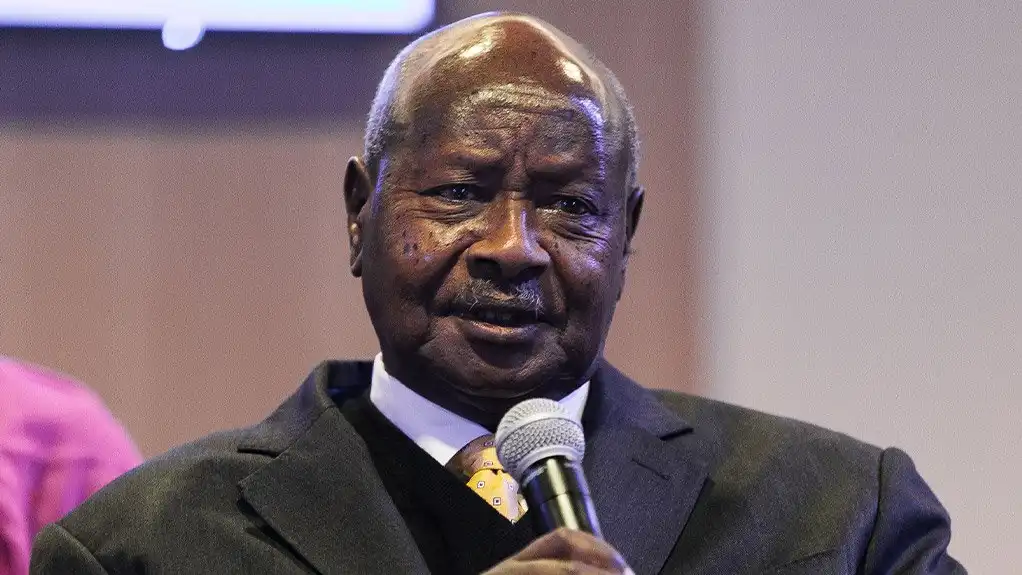On October 21, 2025, Uganda’s electoral commission confirmed January 15, 2026, as the date for the nation’s general elections. Voters will choose the president and members of parliament in a highly anticipated contest.
President Yoweri Museveni, 81, who has led Uganda since 1986, seeks another term, making him one of Africa’s longest-serving leaders. His main challenger is expected to be pop star-turned-politician Bobi Wine, alongside six candidates from smaller parties.
The election promises to be a flashpoint, with tensions high over Museveni’s long rule and accusations of undemocratic practices. Uganda’s political landscape remains deeply divided as the vote approaches.
Museveni’s Legacy
A former rebel leader, Museveni has held power for nearly four decades, credited with bringing stability, driving economic progress, and tackling HIV/AIDS. His administration has overseen infrastructure growth and relative peace after years of turmoil.
However, critics highlight a darker side, pointing to crackdowns on dissent, human rights violations, and widespread corruption.
Museveni’s government twice amended the constitution to remove term and age limits, allowing his continued rule. These changes have fueled accusations of power consolidation, with opponents arguing that democratic freedoms are eroding under his National Resistance Movement (NRM) party.
Bobi Wine’s Challenge
Bobi Wine, born Robert Kyagulanyi, has emerged as Museveni’s chief rival. The 43-year-old musician leverages his fame to connect with Uganda’s youth, who form a significant voter base. His message of change resonates with those frustrated by unemployment and governance issues.
In the 2021 election, Wine challenged Museveni, alleging widespread fraud, including vote rigging, voter coercion, and bribery.
The NRM dismissed these claims, asserting the election was fair. Wine’s campaign, rooted in grassroots energy, continues to gain traction, positioning him as a symbol of resistance against entrenched power.
Political Tensions
The 2026 election follows a history of contentious polls. Wine’s 2021 campaign faced obstacles, including arrests and rally disruptions, which he and supporters claimed were orchestrated to suppress his movement.
The six other candidates, representing smaller parties, add diversity to the race but face challenges breaking through the dominance of Museveni and Wine.
The parliamentary elections, running alongside the presidential vote, will shape Uganda’s legislative direction. With youth unemployment and economic inequality as key issues, candidates are under pressure to address voter concerns.
Democratic Concerns
Critics argue that Uganda’s electoral process lacks fairness, citing restrictions on opposition activities and media. Reports of intimidation and arrests during past campaigns have raised doubts about the electoral commission’s impartiality.
The NRM’s firm grip on state institutions further complicates the opposition’s efforts to compete on equal footing.
International observers are expected to monitor the January vote closely, urging transparency and respect for democratic norms. Past elections have sparked protests, and fears of unrest linger if the process is seen as flawed.
Looking Ahead
The January 15 election is a pivotal moment for Uganda. Museveni’s bid for another term tests the nation’s democratic resilience, while Wine’s campaign energizes a generation seeking change.
The outcome will influence Uganda’s path, either reinforcing long-standing leadership or signaling a shift toward new voices.
As campaigns intensify, Ugandans hope for a peaceful and fair process. The world watches, eager to see if the election strengthens democracy or deepens divisions in this East African nation.
READ MORE: Madagascar Faces Leadership Shift After Military Coup




















